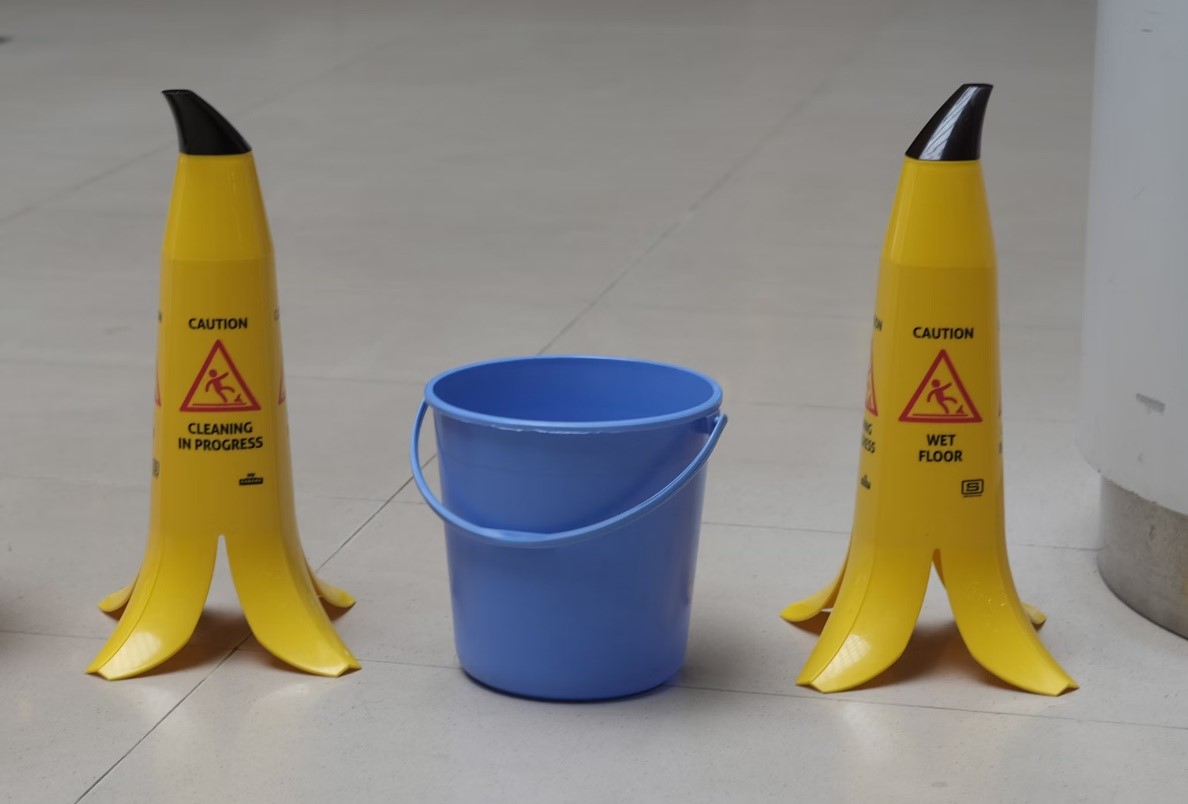
Understanding Liability in Slip and Fall Accidents: Who’s Responsible?
Slip and fall accidents are unfortunately common occurrences, often resulting in injuries ranging from minor bruises to severe fractures. In the state of Florida, where the weather can lead to slippery conditions, these accidents are especially prevalent. But when you slip and fall on a wet floor that was recently mopped by a contractor cleaning company, and no warning signs were placed, who bears the responsibility?
In legal terms, determining liability in such cases can be complex and multifaceted. However, Florida law provides guidelines to ascertain responsibility in slip and fall accidents, particularly when they occur on commercial or residential properties. Let’s delve into the factors involved and understand who might be held accountable.
Duty of Care: Property Owner and Contractor
In Florida, property owners have a legal obligation to maintain safe premises for visitors and guests. This duty of care extends to ensuring that any hazards, such as wet floors, are promptly addressed or adequately warned against. However, property owners often delegate maintenance tasks to third-party contractors, such as cleaning companies.
When a contractor is hired to clean a property, they also assume a duty of care regarding the safety of the premises. This duty includes taking reasonable steps to prevent foreseeable accidents, such as mopping floors during low-traffic hours and placing warning signs to alert individuals of potential hazards.
Negligence and Foreseeability
Negligence plays a crucial role in determining liability in slip and fall cases. Negligence occurs when a party fails to exercise reasonable care, resulting in harm to another person. In our scenario, if the cleaning company failed to place warning signs despite knowing the floor was wet, they may be considered negligent.
Foreseeability is another essential factor. In Florida, if it was reasonably foreseeable that someone could slip and fall on a recently mopped floor without warning signs, the property owner and the cleaning company may be held liable for any resulting injuries.
Comparative Negligence
Florida follows a comparative negligence system, which means that if the injured party is found partially responsible for their accident, their compensation may be reduced proportionately. For example, if it’s determined that the injured person was distracted and not paying attention to their surroundings, contributing to the accident, their compensation could be reduced accordingly.
Vicarious Liability
In some cases, even if the property owner did not directly cause the hazardous condition, they may still be held liable under the doctrine of vicarious liability. This legal principle holds employers responsible for the actions of their employees while they are performing job-related tasks. If the cleaning company’s employees failed to place warning signs, the company and, by extension, the property owner could be held vicariously liable.
Contractual Agreements
The existence of contractual agreements between the property owner and the cleaning company can also impact liability. If the contract clearly outlines the responsibilities of each party regarding safety protocols and maintenance procedures, it can serve as evidence in determining who breached their duty of care.

Proving Notice
In premises liability cases, including slip and fall accidents, proving notice is often crucial in establishing liability. Notice refers to the property owner’s or occupier’s awareness of a hazardous condition on their premises. In Florida, there are two main types of notice:
- Actual Notice: This occurs when the property owner or occupier has direct knowledge of the hazardous condition. For example, if the property owner was informed by an employee or a contractor about the wet floor but failed to take appropriate action, they may be considered to have actual notice.
- Constructive Notice: This is inferred knowledge based on the circumstances. It suggests that the property owner or occupier should have known about the hazardous condition if they had exercised reasonable care in inspecting and maintaining their property. Constructive notice often comes into play when a hazardous condition existed for a significant period, and it would have been discovered through routine inspections.
Application to the Scenario
In the scenario where a cleaning company mops a floor without placing warning signs, the question of notice becomes pivotal. Did the property owner have actual or constructive notice of the hazardous condition?
- Actual Notice: If the property owner was directly informed by the cleaning company or its employees about the freshly mopped floor and the absence of warning signs, they would have actual notice. In such a case, their failure to address the situation promptly could strengthen the injured party’s claim for compensation. In this case, the cleaning company would be deemed to have actual notice of the dangerous condition because they created the condition themselves when they mopped the floor.
- Constructive Notice: If the hazardous condition persisted for a considerable period, such as if the floor remained wet for an extended time after cleaning, the property owner might be deemed to have constructive notice. This could be inferred if regular inspections or maintenance checks should have revealed the hazard.
Effect on Liability
The establishment of notice significantly influences the allocation of liability in slip and fall cases. In this case, the cleaning company will share liability for this accident because they had actual notice of the dangerous condition when they created it. If the property owner had notice of the hazardous condition but failed to take reasonable steps to address it, they may be held accountable for any resulting injuries. Similarly, if the cleaning company had a contractual obligation to place warning signs but neglected to do so, they could share liability for the accident. The agreement between the cleaning company and the property owner will provide some clarity on who would be responsible for damage sin this situation.
Legal Recourse for Slip and Fall Victims
If you’ve been injured in a slip and fall accident due to the negligence of a property owner or a cleaning company, you have the right to seek compensation for your damages. These damages may include medical expenses, lost wages, pain and suffering, and other related costs.
To pursue a personal injury claim in Florida, it’s essential to gather evidence to support your case, such as witness statements, photographs of the accident scene, and medical records documenting your injuries. Consulting with an experienced personal injury attorney can help you navigate the legal process and advocate for your rights.
Conclusion
In slip and fall accidents involving wet floors and absent warning signs, determining liability in Florida requires a careful examination of various factors, including the actions of the property owner and any contracted cleaning companies. Both parties may share responsibility for the accident, depending on the circumstances.
Ultimately, the goal is to ensure that victims of slip and fall accidents receive the compensation they deserve for their injuries and losses. By understanding the legal principles governing premises liability in Florida, individuals can better protect their rights and seek justice in the event of an accident. If you find yourself in such a situation, don’t hesitate to seek legal guidance to explore your options and pursue the compensation you’re entitled to.
If you are injured in an accident, call Jaime “Mr. 786Abogado” Suarez today to Get You Paid!





